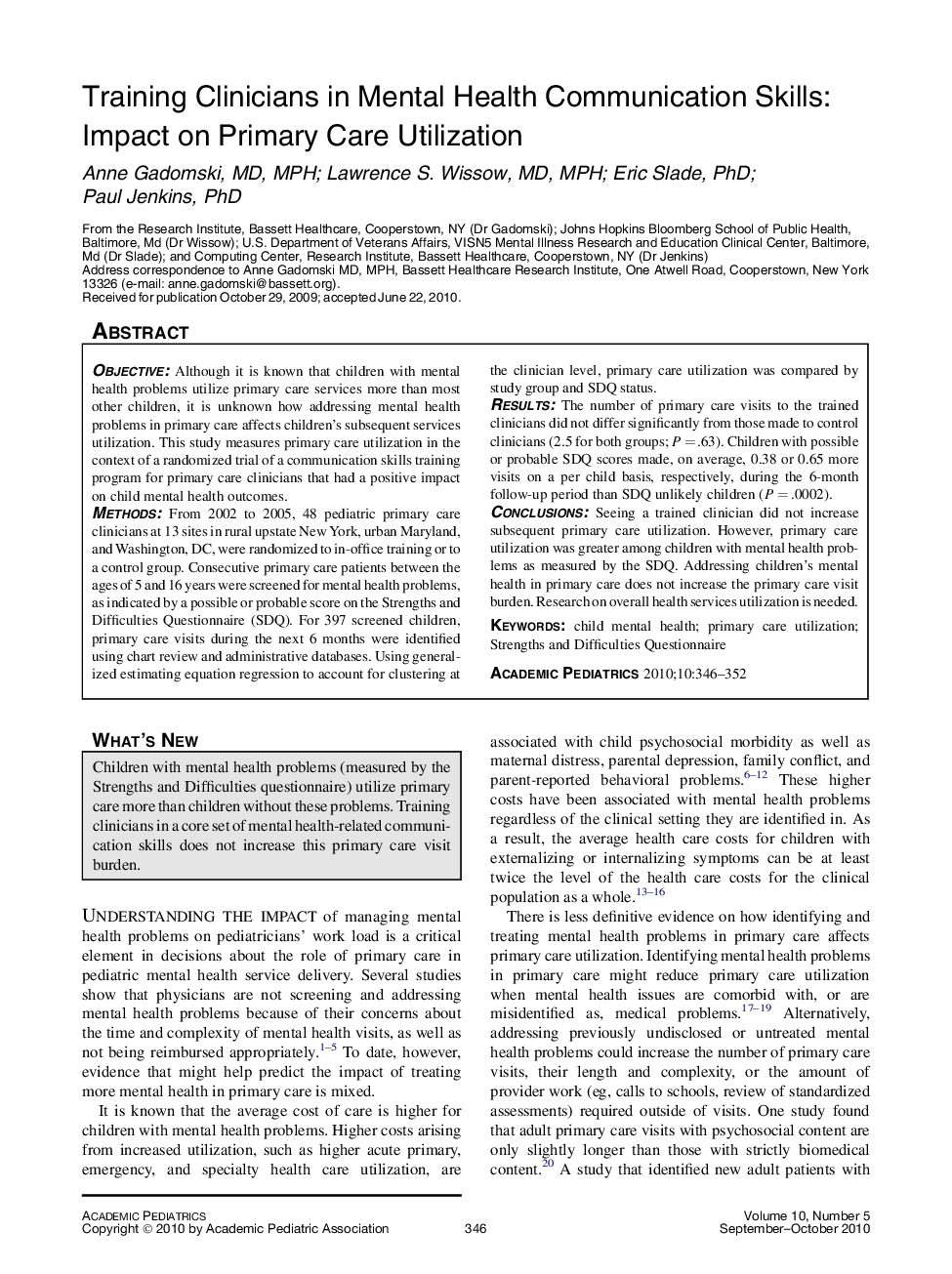| Article ID | Journal | Published Year | Pages | File Type |
|---|---|---|---|---|
| 4140034 | Academic Pediatrics | 2010 | 7 Pages |
ObjectiveAlthough it is known that children with mental health problems utilize primary care services more than most other children, it is unknown how addressing mental health problems in primary care affects children’s subsequent services utilization. This study measures primary care utilization in the context of a randomized trial of a communication skills training program for primary care clinicians that had a positive impact on child mental health outcomes.MethodsFrom 2002 to 2005, 48 pediatric primary care clinicians at 13 sites in rural upstate New York, urban Maryland, and Washington, DC, were randomized to in-office training or to a control group. Consecutive primary care patients between the ages of 5 and 16 years were screened for mental health problems, as indicated by a possible or probable score on the Strengths and Difficulties Questionnaire (SDQ). For 397 screened children, primary care visits during the next 6 months were identified using chart review and administrative databases. Using generalized estimating equation regression to account for clustering at the clinician level, primary care utilization was compared by study group and SDQ status.ResultsThe number of primary care visits to the trained clinicians did not differ significantly from those made to control clinicians (2.5 for both groups; P = .63). Children with possible or probable SDQ scores made, on average, 0.38 or 0.65 more visits on a per child basis, respectively, during the 6-month follow-up period than SDQ unlikely children (P = .0002).ConclusionsSeeing a trained clinician did not increase subsequent primary care utilization. However, primary care utilization was greater among children with mental health problems as measured by the SDQ. Addressing children’s mental health in primary care does not increase the primary care visit burden. Research on overall health services utilization is needed.
